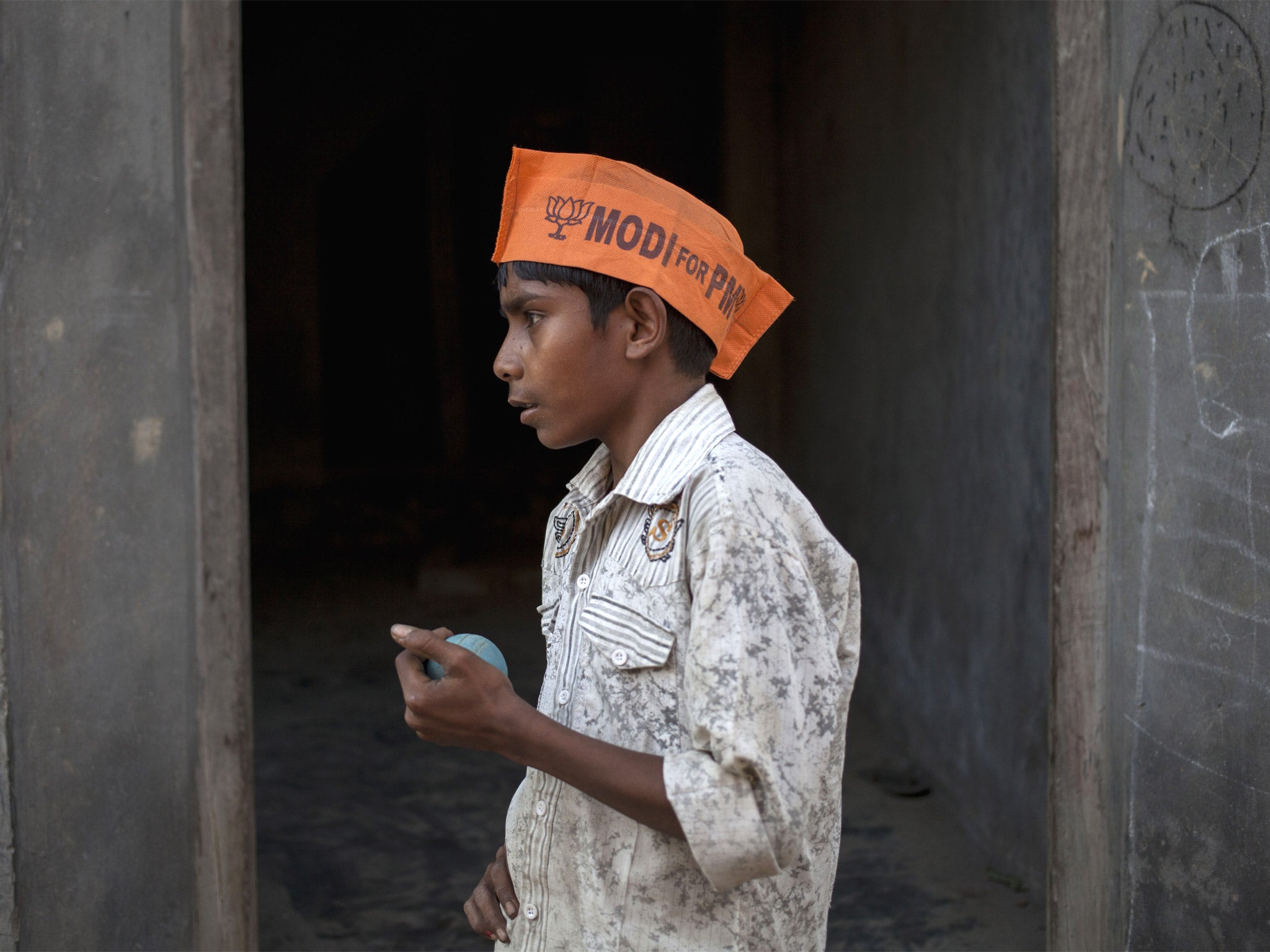Indian election 2014: Corruption and infrastructure on the agenda during biggest poll so far

Your support helps us to tell the story
From reproductive rights to climate change to Big Tech, The Independent is on the ground when the story is developing. Whether it's investigating the financials of Elon Musk's pro-Trump PAC or producing our latest documentary, 'The A Word', which shines a light on the American women fighting for reproductive rights, we know how important it is to parse out the facts from the messaging.
At such a critical moment in US history, we need reporters on the ground. Your donation allows us to keep sending journalists to speak to both sides of the story.
The Independent is trusted by Americans across the entire political spectrum. And unlike many other quality news outlets, we choose not to lock Americans out of our reporting and analysis with paywalls. We believe quality journalism should be available to everyone, paid for by those who can afford it.
Your support makes all the difference.Tens of millions of Indians today headed for the voting booths on the most important day so far in the country’s month-long process to select a new government.
Around 110m voters were registered to vote in 92 constituencies located in 14 states across the country. This represents about a fifth of the total number of seats in India’s parliament.
Today is the third of nine days spread out over five weeks or so on which people will be voting. But the two previous days of voting, on Monday and Wednesday, involved a total of just seven constituencies, located in the nation’s north-east.
Today’s seats include many in the battleground states of Uttar Pradesh, Bihar, Maharashtra and Madhya Pradesh. Voters were today also deciding the outcome of the seven constituencies located in the nation’s capital, Delhi.
Among those voting this morning in old Delhi, the 17th Century quarter that makes up the Chandi Chowk constituency, was Ram Prakash, a tailor who works in the celebrated market. He said he had thought about voting for the opposition Bharatiya Janata Party (BJP) and its prime ministerial candidate, Narendra Modi, but had opted for the ruling Congress party.
“I am a Congress supporter and I will remain loyal to the Congress. All my family voted for Congress,” he said.
Yet plenty said they had voted for the BJP. “I voted for Modi. He will be the next prime minister,” said 24-year-old Lounesh Kumar, who works in a shop. “I think Modi will deal with corruption.”
Election observers said the Chandi Chowk constituency, which has a 20 per cent Muslim population, involves a three-way fight between the Congress, the BJP and the Common Man Party (AAP), a recently formed outfit that has been targeting corruption. The sitting MP, Kapil Sibil, is a Congress government minister.
Among those to voted early in Delhi were members of the Nehru-Gandhi family, including the party’s head, Sonia, her son Rahul, who is heading the party’s campaign, and her daughter Priyanka. Arvind Kejriwal, head of the AAP party, also voted early.
In Chandi Chowk while some voters talked about issues such as development and corruption which have dominated the campaign at a national level, many also referred to local problems. Poor roads and an irregular supply of water and electricity were the most important of these.
The polling day with the biggest number of constituencies involved will be 17 April when voters decide the outcome of 122 seats. On 24 April, 117 seats will be decided. The results of the election are due to be announced on 16 May.
Join our commenting forum
Join thought-provoking conversations, follow other Independent readers and see their replies
Comments